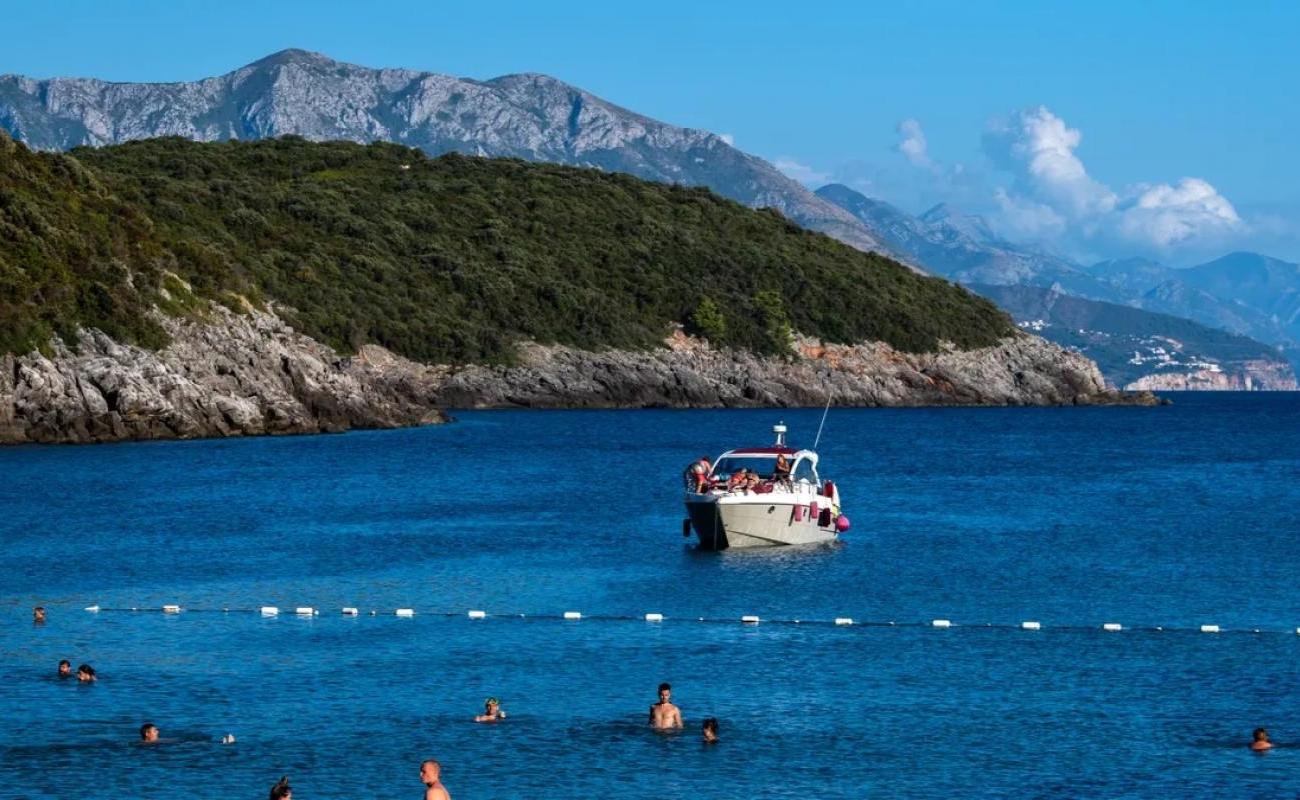Laying low in Budva
Montenegrin sanctions on Russian oligarch Oleg Deripaska haven’t ended his business interests in the country

When the full-scale invasion of Ukraine began, Montenegro announced that its foreign policy would align with that of Western countries, and resolved to impose sanctions on Russia. But lax enforcement has turned the country into a safe-haven for Kremlin-connected elites right on the European Union’s periphery.
The resort town of Budva is picture-perfect: surrounded on one side by the turquoise Adriatic Sea and mountains on the other. Its popularity among tourists has spurred development that residents worry has tarnished the landscape and invited corruption.
In the marina near Budva’s old town, pleasure boats for tourists bob next to private yachts flying flags of St. Vincent and the Grenadines. A local Ukrainian businessman said he’d seen Russian oligarch Oleg Deripaska at the marina on his yacht. It’s no secret that the oligarch owns a luxurious estate nearby, where he reportedly hosted Telegram co-founder and CEO Pavel Durov shortly before his arrest last year.
Deripaska, the founder of Russian aluminium giant Rusal and its parent company En+ Group and Basic Element — one of Russia’s largest industrial conglomerates — has been under EU and US sanctions for two years, and in 2024 Montenegro imposed additional sanctions on the metals tycoon.
Yet in January, officials in Montenegro greenlit a project linked to Deripaska to construct a five-star hotel near Trsteno Beach, not far from Budva. The land is owned by an offshore company that local reporting revealed is backed by Deripaska. The company has owned that land for 20 years.
Cape Platamuni is home to Deripaska’s luxury private estate. Satellite images show several swimming pools and more than a dozen buildings. The complex is more like a micro-village.
In 2005, Overseas Assets Management acquired a plot of land at Cape Platamuni. At the time, the identity of the owner was hidden behind another offshore company from the British Virgin Islands, but local media quickly linked that company to Deripaska. In 2017, during legal proceedings in the US, authorities also named Deripaska as the company’s owner. In January 2024, Montenegrin firm Overseas Assets, and the villa that it owns, passed into the possession of another company.
Since the mid-2000s, Deripaska has invested billions of euros in Montenegro’s economy.
Since the mid-2000s, Deripaska has invested billions of euros in Montenegro’s economy. But his relationship with the local authorities changes dramatically depending on the country’s foreign policy.
Montenegro has been a candidate for EU membership since 2010, and joined NATO in 2017. But even as it outwardly pursues European integration, Montenegro shows that its ties to Russia remain strong.
Large-scale Russian investor
In the mid-2000s, Deripaska’s money was only too welcome in Montenegro. In 2005, his holding company En+ Group acquired the Podgorica Aluminium Plant, KAP, the largest industrial enterprise in the country. The plant was known as the “pillar of the economy”. Before the 2008 global financial crisis, about 10% of Montenegro’s population was directly or indirectly dependent on it. According to some estimates, at its peak, the company generated up to half of the country’s GDP.
Deripaska had also acquired the controlling stake of the bauxite mine in Nikšić — the sole source of raw materials for the plant. At the time, Montenegrin authorities saw Russian investment as life-saving for floundering state-owned enterprises.
Big business went hand in hand with political influence. Deripaska’s influence grew so great that the opposition Movement for Change called him the “financial right-hand man” of Prime Minister Milo Đukanović.
In 2019, the extent of Deripaska’s political involvement started becoming clear. In 2005, Deripaska discussed the Montenegrin independence referendum with Foreign Minister Milan Roćen. Roćen asked him to use his influence over Canadian billionaire Peter Munch to lobby the US for favourable referendum conditions, following unwelcome pressure from Europe.
“I suspect Roćen still provides a link to both Deripaska and the Russian authorities.”
Prior to becoming Foreign Minister, Roćen was the ambassador to Russia from 1998 to 2003. He has acted as a key interlocutor during sensitive talks between the two countries ever since. “I suspect Roćen still provides a link to both Deripaska and the Russian authorities,” said the US-based Montenegrin political scientist and journalist Ljubomir Filipović.
But the 2008 global financial crisis radically altered Deripaska’s position in the country.
Neither friend nor foe
The financial crisis hit the aluminium business hard: metal prices collapsed, and by 2009 KAP was on the verge of bankruptcy. The Montenegrin government
